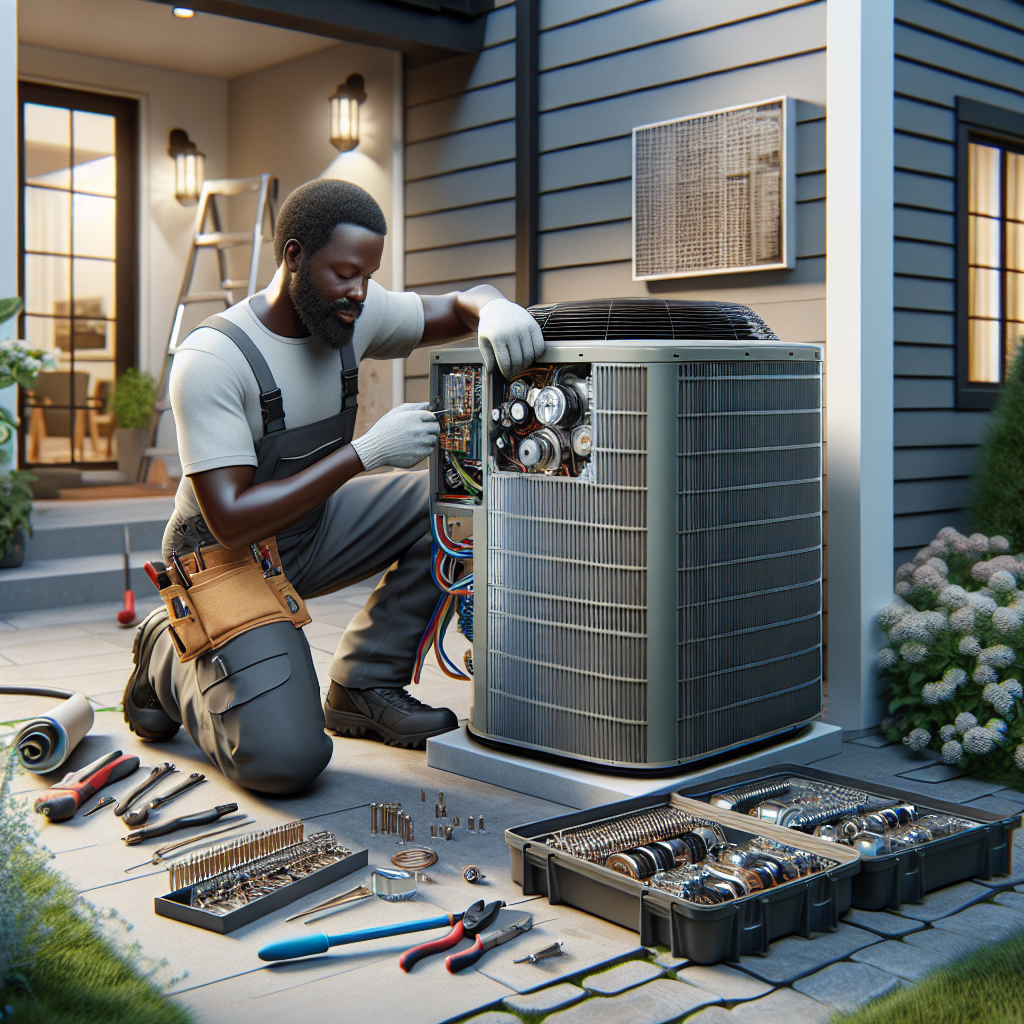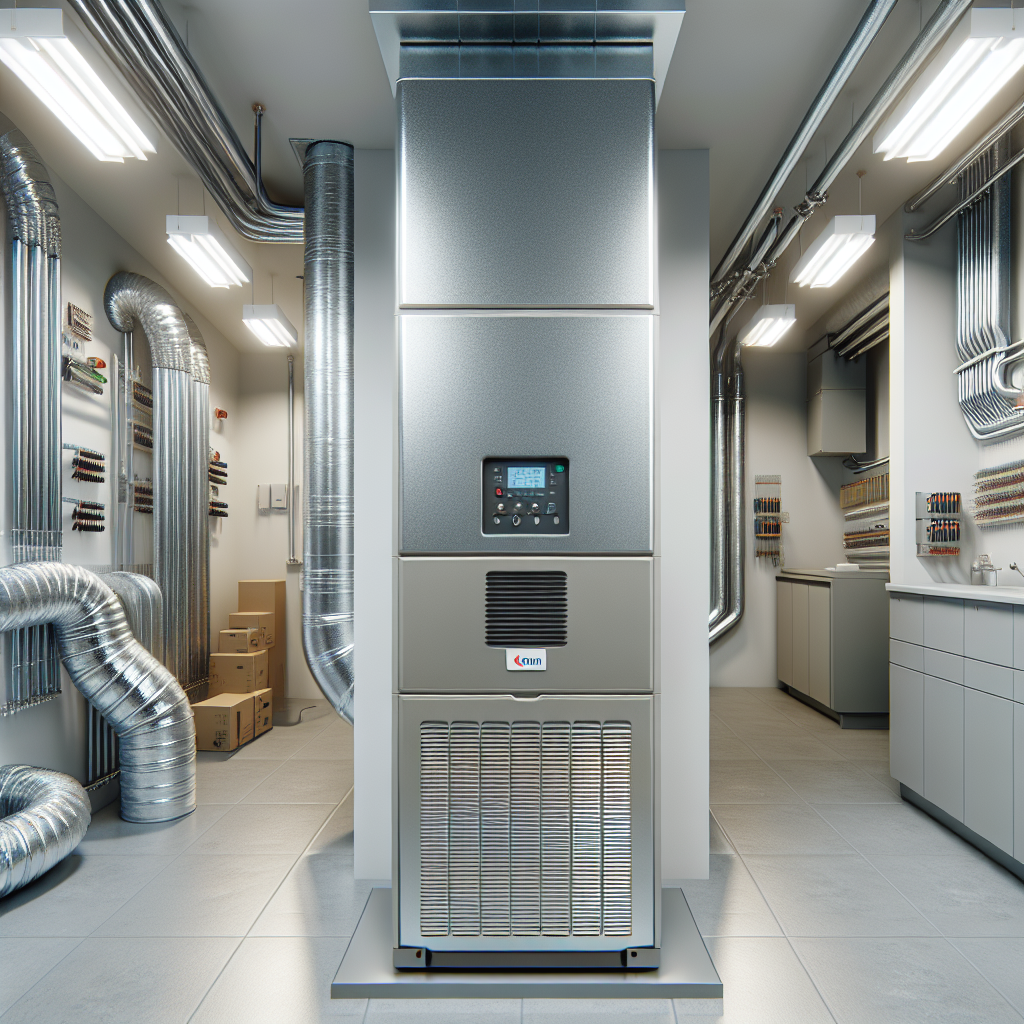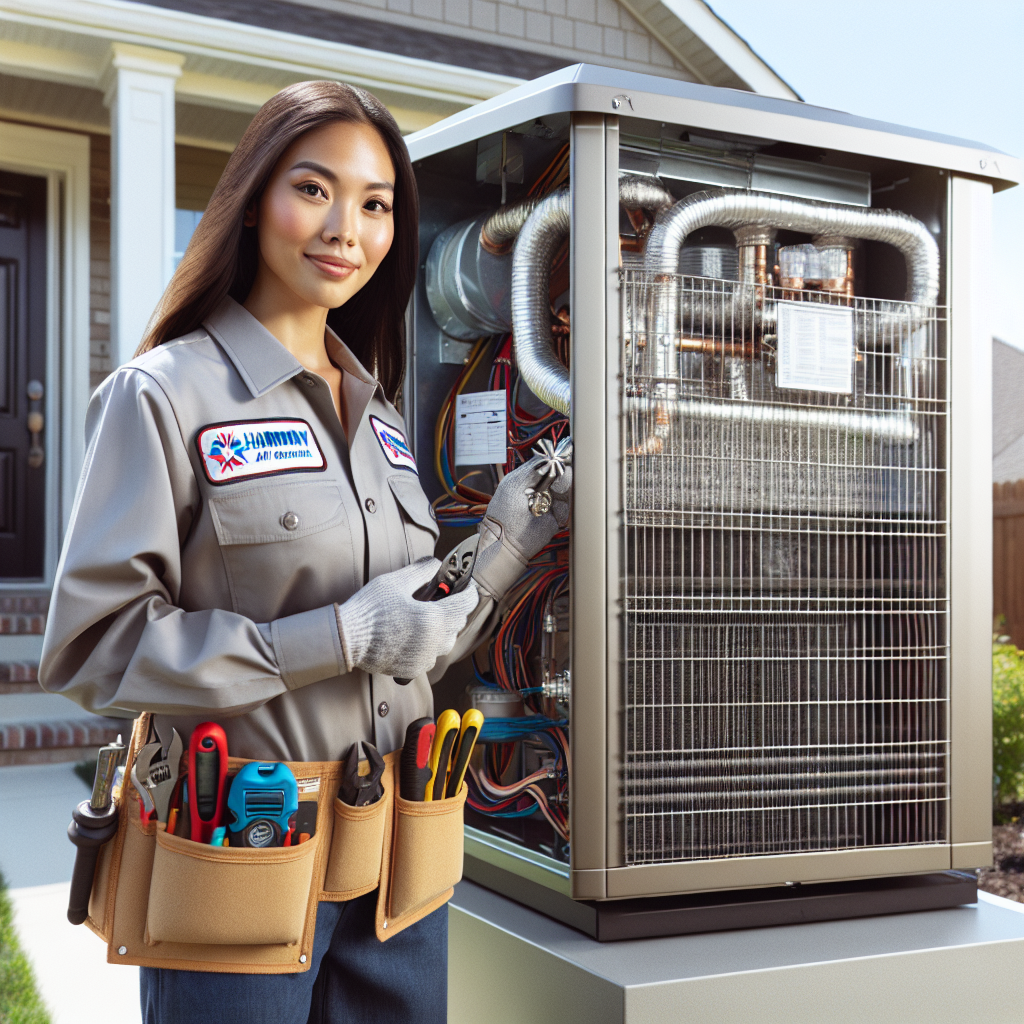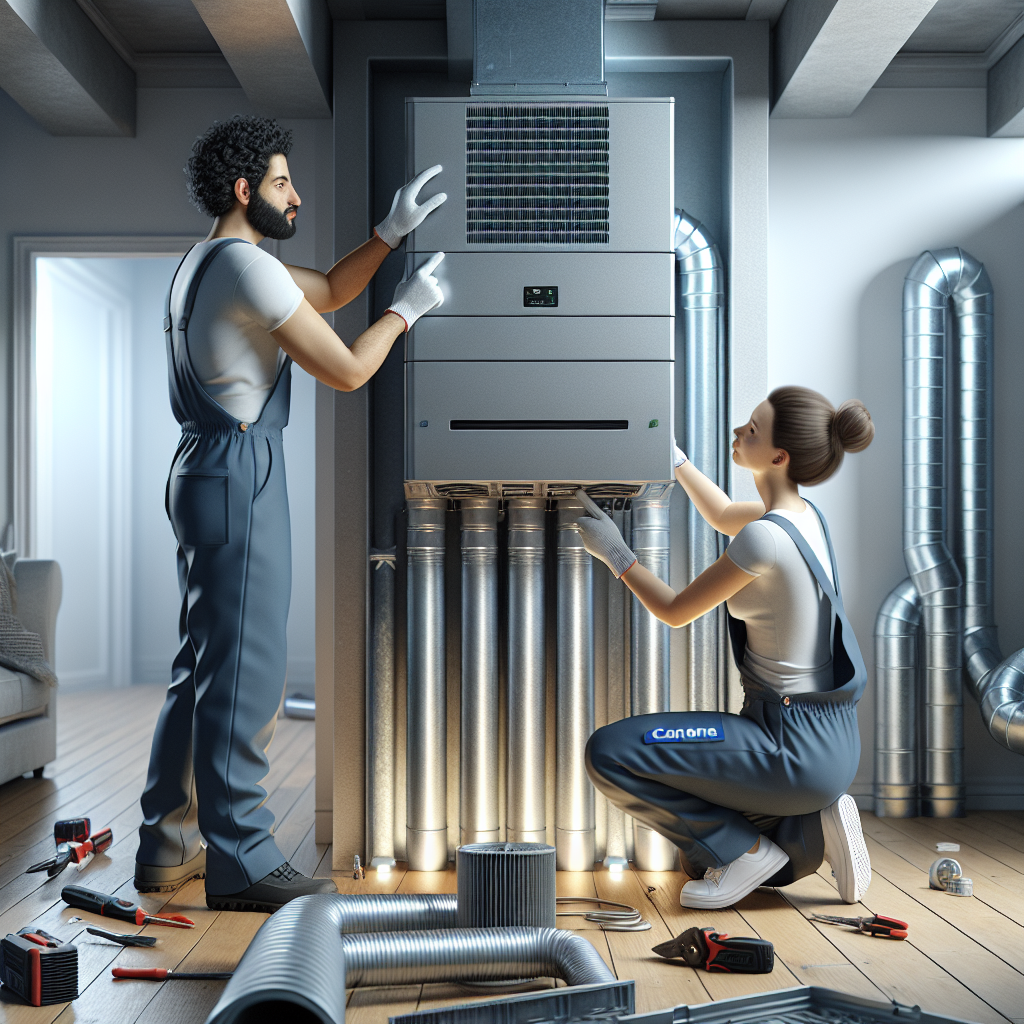
How Much Does an HVAC Replacement Cost? Find Out Now!
When it comes to maintaining a comfortable indoor environment, an efficient HVAC system is essential. However, over time, even the best systems can wear out and require replacement. Understanding how much does a HVAC replacement cost is crucial for homeowners planning to upgrade their units. HVAC replacement costs can vary widely based on several factors, and being informed can help you make the best decision for your home and budget.
Several elements influence the overall cost of an HVAC replacement. These include the type of system you choose, the size of your home, the complexity of the installation, and local labor rates. Additionally, the efficiency rating of the new system and any necessary modifications to your existing ductwork can also impact the price. By breaking down these factors, we aim to provide you with a comprehensive understanding of what to expect when replacing your HVAC system.
At Harmony Air LLC, we believe that knowledge is power. Our goal is to educate our clients so they can make informed decisions about their HVAC needs. If you’re considering an HVAC replacement, don’t hesitate to reach out to us for expert advice and a detailed quote. Call now at 772-203-2571 or visit our website to learn more about our services.
Factors Influencing HVAC Replacement Costs

Several critical factors can influence the cost of HVAC replacement, making it essential to understand each one before making a decision. Here are the primary elements that can affect your overall expenses:
- Type of System: The choice between a central air system, ductless mini-splits, or heat pumps can significantly impact costs. Each type has different price points and efficiency levels, which can affect your long-term energy savings.
- Unit Size: The size of the HVAC unit needed for your home is determined by its square footage and cooling/heating requirements. Larger units typically cost more but are necessary for adequately conditioning larger spaces.
- Installation Complexity: The complexity of the installation process, including the need for additional ductwork, electrical upgrades, or modifications to your home’s structure, can add to the overall cost. Homes with existing ductwork may have lower installation costs than those requiring new duct systems.
- Efficiency Ratings: Higher efficiency units often come with a higher upfront cost but can result in significant energy savings over time. Look for units with high SEER (Seasonal Energy Efficiency Ratio) ratings for the best long-term value.
- Labor Costs: Labor rates can vary by region and the specific HVAC contractor you choose. It’s essential to obtain multiple quotes to ensure you’re getting a fair price for the installation.
- Additional Features: Optional features such as smart thermostats, air purifiers, or zoning systems can enhance your HVAC system but will also increase the overall cost.
By considering these factors, you can better understand the variables that influence HVAC replacement costs and make a more informed decision. Always consult with a trusted HVAC professional to get a detailed estimate tailored to your specific needs.
Cost Breakdown for HVAC Replacement

Understanding the cost breakdown for HVAC replacement can help you plan your budget more effectively and avoid unexpected expenses. Here’s a detailed look at the typical components that contribute to the overall cost:
- Equipment Costs: This is the most significant portion of your expense and includes the HVAC unit itself. Depending on the type and size of the system, equipment costs can range from several hundred to several thousand dollars.
- Labor Costs: Labor is another substantial component and includes the fees for professional installation. Labor costs can vary based on the complexity of the installation and local labor rates, typically ranging from $1,500 to $3,000 or more.
- Ductwork: If your home requires new ductwork or repairs to existing ducts, this can add to the overall cost. Ductwork installation can range from $1,000 to $5,000, depending on the extent of work needed.
- Permits and Inspections: Many local governments require permits and inspections for HVAC installations. These fees can vary but generally add a few hundred dollars to your total cost.
- Removal and Disposal: The cost to remove and dispose of your old HVAC system is often included in the installation fee, but it’s essential to confirm this with your contractor. This can add an additional $100 to $500.
- Miscellaneous Costs: Other potential expenses include upgrading your electrical system, purchasing a new thermostat, or adding features like air purifiers. These costs can vary widely depending on your specific needs.
By breaking down these costs, you can get a clearer picture of where your money is going and ensure that you’re adequately prepared for your HVAC replacement. Always request a detailed quote from your HVAC contractor to avoid any surprises and make an informed decision.
Comparing Different HVAC Systems
When it comes to comparing different HVAC systems, several factors must be considered to ensure you select the best option for your home. Here’s a look at some of the most common types of HVAC systems and their respective benefits:
- Central Air Conditioning: Central AC systems are popular for their ability to cool large spaces efficiently. They use ductwork to distribute cool air throughout your home. They are typically more expensive to install but offer even cooling and better air quality control.
- Heat Pumps: Heat pumps are versatile units that provide both heating and cooling by transferring heat between the interior and exterior of your home. They are energy-efficient and can reduce your utility bills, particularly in milder climates.
- Ductless Mini-Split Systems: These systems are ideal for homes without existing ductwork. They consist of an outdoor unit and one or more indoor units, providing zoned heating and cooling. They are easy to install and offer flexible temperature control for individual rooms.
- Window Units: Window AC units are a cost-effective and straightforward solution for cooling single rooms. While they are less efficient for whole-house cooling, they are an excellent option for supplemental cooling in specific areas.
- Portable Air Conditioners: Portable units are similar to window units but can be moved from room to room. They are easy to install and offer flexibility, although they may not be as efficient as other systems.
- Geothermal Systems: Geothermal heat pumps use the earth’s constant temperature to provide heating and cooling. While the initial installation cost is high, they offer significant energy savings and are environmentally friendly.
Each HVAC system has its unique advantages and potential drawbacks. The best choice for your home will depend on various factors, including your budget, existing infrastructure, climate, and personal preferences. By understanding the different options available, you can make an informed decision that meets your needs and ensures comfort year-round.
Tips for Budgeting HVAC Replacement

Replacing an HVAC system is a significant investment, and effective budgeting can help ensure the process goes smoothly and is financially manageable. Here are some tips for budgeting HVAC replacement:
- Evaluate Your Current System: Before setting a budget, assess the condition of your existing HVAC system. Determine if a full replacement is necessary or if partial upgrades could suffice. This evaluation can help you avoid unnecessary expenses.
- Research Costs: Understand the typical costs associated with different types of HVAC systems. Prices can vary widely based on the system’s size, efficiency, and brand. Gather quotes from multiple contractors to get a comprehensive view of potential expenses.
- Consider Energy Efficiency: Investing in a high-efficiency HVAC system may have a higher upfront cost but can lead to substantial savings on your utility bills over time. Look for systems with high SEER (Seasonal Energy Efficiency Ratio) ratings and consider the long-term energy savings.
- Plan for Additional Costs: Factor in additional expenses beyond the cost of the unit itself. This includes installation fees, permits, ductwork repairs or modifications, and any necessary electrical upgrades. Having a buffer in your budget can prevent financial surprises.
- Explore Financing Options: Many HVAC contractors offer financing plans that allow you to spread the cost over time. Look for low-interest or no-interest financing options to make your investment more manageable without incurring significant debt.
- Utilize Rebates and Incentives: Check for available rebates, tax credits, and incentives from manufacturers, utility companies, and government programs. These can significantly reduce the overall cost of your HVAC replacement.
- Schedule Regular Maintenance: Investing in regular maintenance can extend the lifespan of your new HVAC system and prevent costly repairs. This proactive approach can save you money in the long run and ensure your system operates efficiently.
Budgeting for an HVAC replacement requires careful planning and consideration of various factors. By following these tips, you can create a realistic budget that meets your financial constraints while ensuring you get the best value for your investment.
Finding Reliable HVAC Contractors

When it comes to replacing your HVAC system, finding a reliable contractor is crucial to ensure quality work and a fair price. Here are some steps to help you find a trustworthy HVAC contractor:
- Research and Reviews: Start by researching local HVAC contractors. Look for companies with positive customer reviews and high ratings on platforms like Google, Yelp, and the Better Business Bureau. Reading reviews can give you insights into the experiences of other customers and the reputation of the contractor.
- Check Credentials: Ensure that the HVAC contractor is licensed, insured, and certified. Proper credentials indicate that the contractor has met industry standards and is qualified to perform HVAC work. Ask for proof of insurance to protect yourself from any liabilities during the project.
- Ask for Referrals: Reach out to friends, family, and neighbors who have recently had HVAC work done. Personal referrals can be incredibly valuable as they come from trusted sources who have firsthand experience with the contractor’s services.
- Get Multiple Quotes: Obtain quotes from at least three different HVAC contractors. This allows you to compare prices, services, and warranties. Be wary of quotes that are significantly lower than others, as they may indicate subpar materials or workmanship.
- Inquire About Experience: Ask potential contractors about their experience with HVAC replacements. A contractor with a proven track record is more likely to deliver quality work. Additionally, inquire about any specialized training or certifications related to the specific HVAC system you need.
- Read the Contract Carefully: Before signing any agreements, thoroughly read the contract. Ensure that it includes all the details of the project, such as the scope of work, materials to be used, timeline, and payment schedule. Clarify any terms you don’t understand to avoid misunderstandings later.
- Evaluate Customer Service: Pay attention to the contractor’s communication and professionalism. A reliable contractor should be responsive, transparent, and willing to address your questions and concerns. Good customer service is a strong indicator of a contractor’s commitment to client satisfaction.
Finding a reliable HVAC contractor can make a significant difference in the success of your HVAC replacement project. By following these steps, you can ensure that you choose a contractor who will provide high-quality service and peace of mind.
Need help with your HVAC replacement? Call now 772-203-2571 or visit harmony-air.com to connect with the experts at Harmony Air LLC. We are committed to delivering top-notch HVAC services to meet your needs efficiently and affordably.
